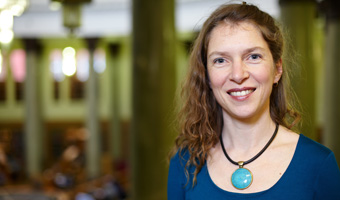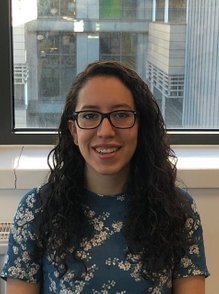Current Lab Members
Prof Cat Davies

My research interests are in first language development, pragmatics, and psycholinguistics. I use experimental data to investigate pragmatic development, i.e. how children understand and produce meaning beyond vocabulary and grammar.
I am currently focusing on the effects of the COVID-19 lockdowns on child development, e.g. The effects of social distancing policies on children’s language development, sleep and executive functions. and The Impact of Covid-19 on Key Learning and Education (ICKLE). I work with a range of government and practitioner stakeholder groups (e.g. the Department for Education, the Welsh Government, Leeds City Council) in applying research findings to practice and policy. My current ESRC-funded project focuses on how young children understand and produce adjectives – a common but challenging area of vocabulary development. I also work on the role of caregiver language, e.g. during shared reading. Another strand of my research investigates how children make choices about how to refer to objects, for example, do they say the spotty dog, the dog, or he to introduce a character in a story? Why does this differ from what adults do? Do they first look at all objects in a scene before describing a specific object? How do they work out how much detail to give?
Prof Cecile De Cat
I study language development in monolingual and bilingual children, and seek to understand how it interacts with their cognitive development. Some of the questions I seek to address include:
- From what age do children master the linguistic rules underlying the exchange of information? How does their cognitive development interact with their linguistic development in that respect?
- How does the amount of bilingual experience of a child affect their proficiency in the language of schooling?
- How do bilingual experience and socio-economic factors affect children’s cognitive development
Dr Hannah Nash
I am a developmental psychologist interested in the factors that affect how children learn to read, these include spoken language skills, working memory, sleep and whether a child has a neurodevelopmental disorder, such as a specific language impairment, dyslexia, attention deficit hyperactivity disorder and narcolepsy. My current research includes a project investigating the impact of school closures on pupils who are at the important transition point between reception and Year 1 (Impact of Covid on Key Learning and Education; ICKLE).
Dr Valentina Brunetto
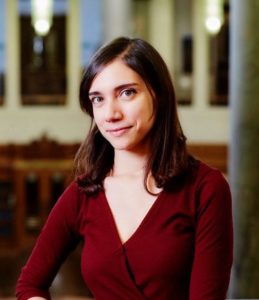 I study the interaction between syntactic structures and interpretation through the lens of child language development. I am particularly interested in how children comprehend complex syntactic structures in the preschool years: how do their linguistic representations change over time? What patterns in children’s syntactic development are universal, and what varies according to the properties of their first language? My current research focuses on how children acquiring different languages (for example English and Romance languages) interpret pronominal forms in complex syntactic structures and in special pragmatic contexts.
I study the interaction between syntactic structures and interpretation through the lens of child language development. I am particularly interested in how children comprehend complex syntactic structures in the preschool years: how do their linguistic representations change over time? What patterns in children’s syntactic development are universal, and what varies according to the properties of their first language? My current research focuses on how children acquiring different languages (for example English and Romance languages) interpret pronominal forms in complex syntactic structures and in special pragmatic contexts.
Former and affiliated lab members
Dr Drasko Kascelan
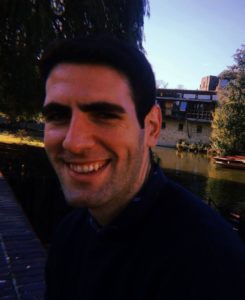 I am a linguist who worked as a post-doctoral research assistant on the Q-BEx project. My previous research focused on child bilingualism, cognition (executive functions and the Theory of Mind), figurative language (idioms and metaphors), autistic-like traits, and autism spectrum disorders. My other areas of interest include code-switching, pragmatic language development, language processing, and language impairment. I am currently a lecturer at the University of Essex.
I am a linguist who worked as a post-doctoral research assistant on the Q-BEx project. My previous research focused on child bilingualism, cognition (executive functions and the Theory of Mind), figurative language (idioms and metaphors), autistic-like traits, and autism spectrum disorders. My other areas of interest include code-switching, pragmatic language development, language processing, and language impairment. I am currently a lecturer at the University of Essex.
Dr Amy Atkinson
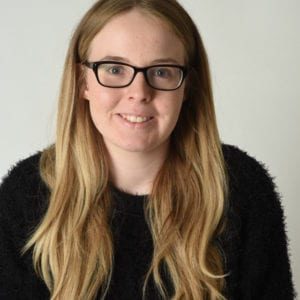 I was a Postdoctoral Research Fellow investigating how children with poor working memory can be better supported in the classroom. My previous work has primarily investigated how adults and children can optimise their performance on working memory tasks by directing their attention to particularly valuable information. I have also been involved in research investigating teachers understanding of working memory, and the extent to which school readiness predicts later academic achievement and special educational needs status in children. I am currently a lecturer in developmental psychology at Lancaster University.
I was a Postdoctoral Research Fellow investigating how children with poor working memory can be better supported in the classroom. My previous work has primarily investigated how adults and children can optimise their performance on working memory tasks by directing their attention to particularly valuable information. I have also been involved in research investigating teachers understanding of working memory, and the extent to which school readiness predicts later academic achievement and special educational needs status in children. I am currently a lecturer in developmental psychology at Lancaster University.
Dr Lydia Gunning
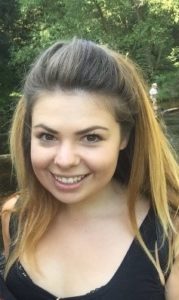 I was a research fellow working on a project with Professor Cecile De Cat to assess the core language skills of pre-adolescents in the Born-in-Bradford cohort. My previous research has focused on bilingualism, ambiguity, figurative language, and the impact of socio-economic status. I am currently a Senior Research Fellow at the Bradford Institute for Health Research working with the Centre for Applied Education Research and Age of Wonder on a number of projects pertaining to academic attainment, Neurodiversity, and language and literacy development. I am particularly interested in how children’s experiences and skills can impact their academic attainment, and later life success.
I was a research fellow working on a project with Professor Cecile De Cat to assess the core language skills of pre-adolescents in the Born-in-Bradford cohort. My previous research has focused on bilingualism, ambiguity, figurative language, and the impact of socio-economic status. I am currently a Senior Research Fellow at the Bradford Institute for Health Research working with the Centre for Applied Education Research and Age of Wonder on a number of projects pertaining to academic attainment, Neurodiversity, and language and literacy development. I am particularly interested in how children’s experiences and skills can impact their academic attainment, and later life success.
Davut Aslan
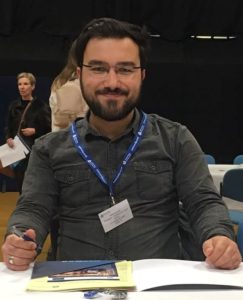
I graduated with a BA from Gazi University (Ankara, Turkey) in Special Education in 2015, passing my Masters degree in the same field in 2018. I was a PhD researcher in the School of Education, investigating the effectiveness of a dialogic reading intervention on the language and early literacy development of children in Turkey. My supervisors were Dr Paula Clarke (Education), Dr Hannah Nash (Psychology) and Dr Cat Davies (Linguistics). My PhD research investigated the impact of a parent-delivered dialogic reading program targeting phonological awareness, vocabulary knowledge, letter knowledge, print awareness, listening comprehension, and reading attitudes in Turkish preschool children whose language development may be at risk due to their socioeconomic background.
Dr Cecilia Zuniga-Montanez
I am a postdoctoral researcher who worked with Dr Cat Davies on the impact phase of the project Children Learning Adjectives in 2021. My previous research looked at language development and vocabulary learning in typically developing infants and children with language delays. My other areas of interest include cognitive development in early years and vocabulary interventions for children with language delays. I am currently a Research Associate at the University of Sheffield working on a project looking at the impact of the pandemic on children’s language, socioemotional and educational outcomes.
Emma Twine
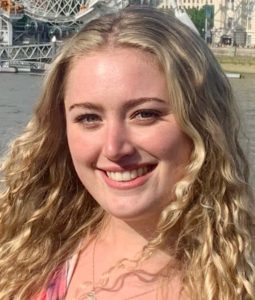 I am an undergraduate psychology student at the University of Leeds who undertook a summer internship at the LCDU in 2022. I worked with with Prof Cat Davies and Leeds Libraries on an evaluation of the Story Bus service, aimed at improving literacy in the under 5s. I co-designed the evaluation, collected and analysed new data, and co-wrote the report Evaluating the Impact of the Leeds Story Buses on Children’s Reading Experience: Data and Recommendations.
I am an undergraduate psychology student at the University of Leeds who undertook a summer internship at the LCDU in 2022. I worked with with Prof Cat Davies and Leeds Libraries on an evaluation of the Story Bus service, aimed at improving literacy in the under 5s. I co-designed the evaluation, collected and analysed new data, and co-wrote the report Evaluating the Impact of the Leeds Story Buses on Children’s Reading Experience: Data and Recommendations.
Anna Hamilton
I am a PhD researcher in the School of Psychology looking at sleep and its impact on the daytime functioning, academic attainment, cognitive development and well-being in children with ADHD. My project is supervised by Dr Hannah Nash and Dr Ian Kellar from the University of Leeds and Professor Heather Elphick from The Sheffield Children’s Hospital.
Dr Jamie Lingwood
Jamie is a researcher interested in how the quality of the input that children experience relates to how they learn language. His research is broadly focused on how we can design, implement and evaluate evidence-based interventions to foster children’s language development. He works with caregivers and children from a range of socioeconomic backgrounds. From 2018-2020 Jamie worked on an ESRC project with Dr Cat Davies in which they investigated how children experience, understand, and use adjectives. Using eyetracking experiments, corpus analyses, and a randomised controlled trial, the project focused how children’s socioeconomic background might affect their descriptive language abilities. Jamie is now a Lecturer in Psychology at Liverpool Hope University.

Bissera Ivanova
Bissera finished her BA in Linguistics and Phonetics at Leeds in 2013 with a theoretical dissertation discussing metaphor processing, then went on to do an MSc in Cognitive and Decision Sciences at UCL. Her research interests are in language processing and acquisition, especially in the wider context of cognitive and emotional processing and development. Bissera worked with Cat Davies and Jamie Lingwood on children’s processing of adjectives in 2019/20.
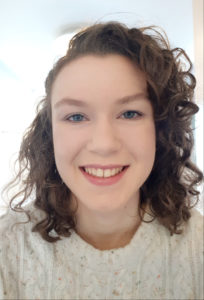
Annika van Wijk
Annika spent Spring 2019 at the LCDU on an internship during her Masters in Linguistics at the University of Groningen. She worked with Cat Davies and Jamie Lingwood on children’s processing of adjectives in 2019.
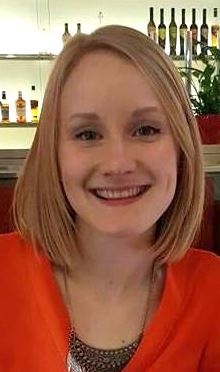
Rachael Staunton
Rachael passed her Masters by Research in 2018. Her thesis investigated the features of child-directed speech used with children diagnosed with Autism Spectrum Disorder (ASD). The project was supervised by Cat Daves and Cecile De Cat.


